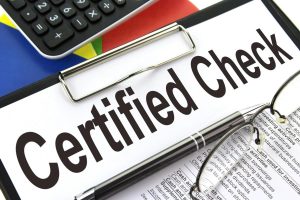The NHS is the UK’s largest employer. Around 1.7 million people work for the health service, in all parts of the country. Most are employed in hospitals or health centres, but the NHS also employs thousands of back office and administration staff. Such a high number of employees means a constant turnover of staff. If you’re thinking of a career change in 2019 then could the NHS be the answer? There are a few hurdles to get past first, such as the identity checks. These are standard, and nothing to be scared of. However, it makes sense to understand what you’re being asked, and why.
Identity Checks – A Standardised Procedure
 As the NHS is such a huge employer, they have drawn up some standard guidelines to make sure everyone is doing the same thing. Wherever in the UK you are located, the interviewers will ask the same questions. The aim of the process is to establish two things: who you are, and whether you have the right to live and work in the UK. There’s lots of guidance online about how the system works. If you’re going for a NHS interview, do some reading in advance. Identity checks aren’t something to fear. However, you won’t be able to start work until you’ve shown the right proof to your employer.
As the NHS is such a huge employer, they have drawn up some standard guidelines to make sure everyone is doing the same thing. Wherever in the UK you are located, the interviewers will ask the same questions. The aim of the process is to establish two things: who you are, and whether you have the right to live and work in the UK. There’s lots of guidance online about how the system works. If you’re going for a NHS interview, do some reading in advance. Identity checks aren’t something to fear. However, you won’t be able to start work until you’ve shown the right proof to your employer.
Checking Identity
Anyone applying for a job in the NHS has to prove that they are who they say they are. There’s the obvious worry of someone assuming the identity of a doctor. On a basic level though, identity theft is a growing issue, and any employer wants to know who they are employing. Usually, you’ll be asked to bring some form of official ID with you to interview. This ID has to have your photo on it. Your passport or driving licence is the best option. Other identification like student cards might also be acceptable but check. The interviewer will want to check that the details you gave on your application form match the ID, and that you look like the photo.
Checking for Legal Workers
The other side to identity checking is making sure that the applicant has the right to live and work in the UK. If you were born and grew up in the UK, and have a UK passport, there’s no confusion. Your right to work in the UK is clear. If you have an EU passport, then you can still live and work in the UK, despite the Brexit negotiations. If you’re from elsewhere in the world, it’s more complex. You will need the appropriate work visa. Penalties for employing illegal workers are high. The NHS simply won’t take the risk of employing illegal workers.
CRB and DBS Checks
If you’re going to be working in a hospital or health centre, you’ll probably need to apply for a CRB check. Or to use the proper name, a Disclosure and Barring Service check (DBS). This is a criminal records check to make sure you’re not a risk to any vulnerable patients. These checks are done after you’ve been offered the job.